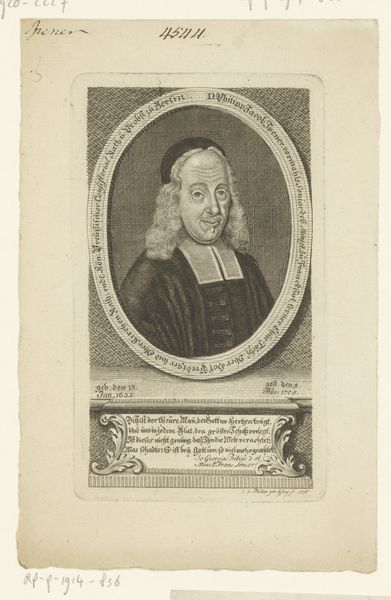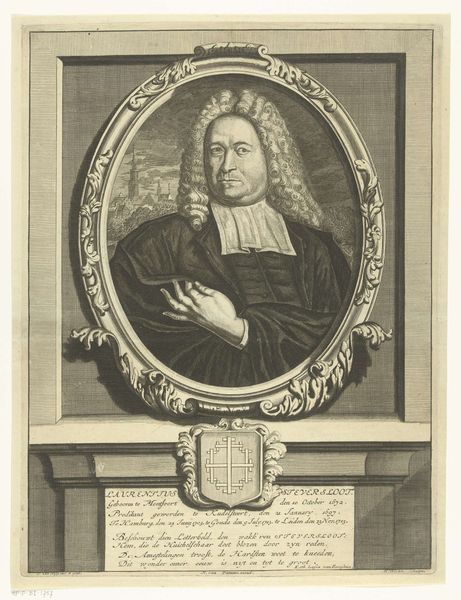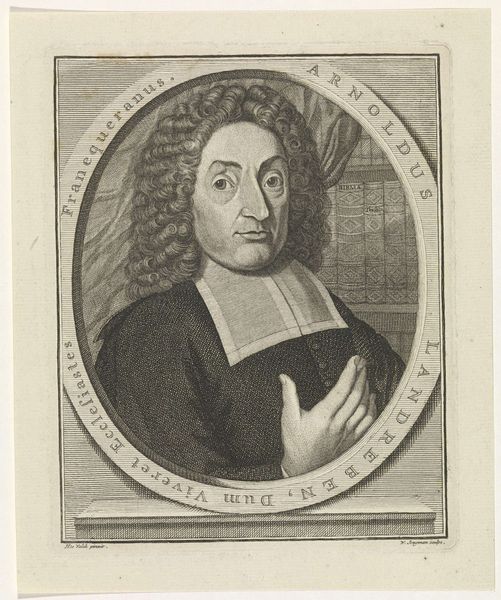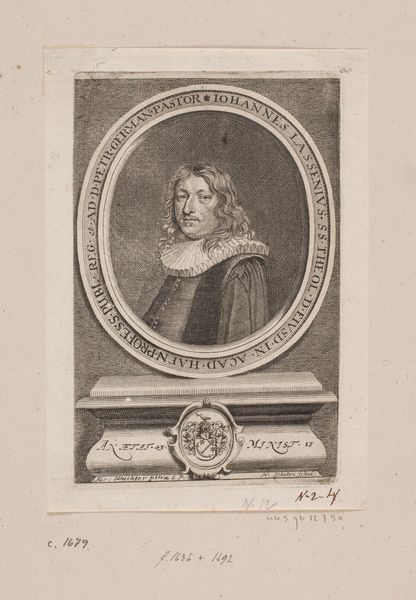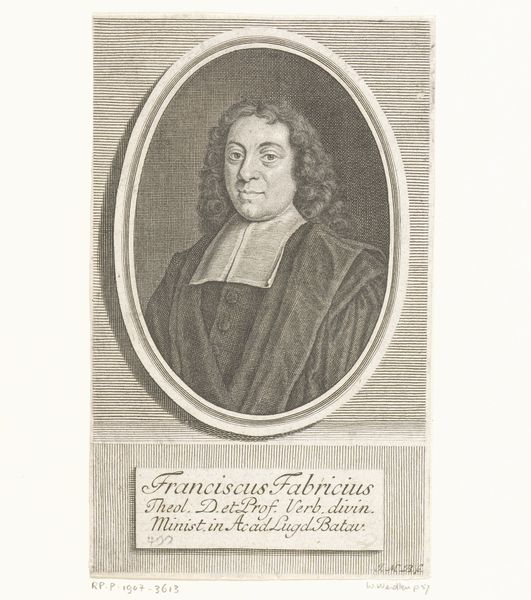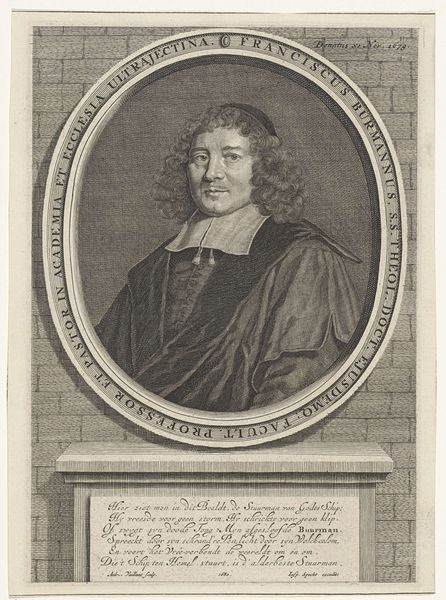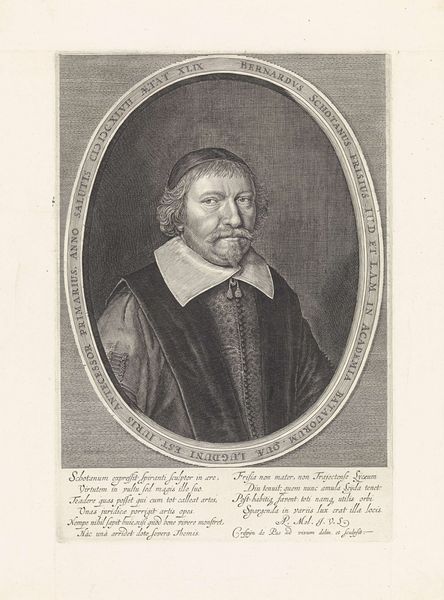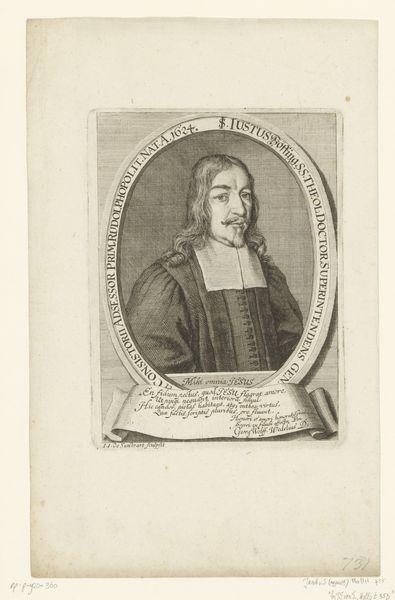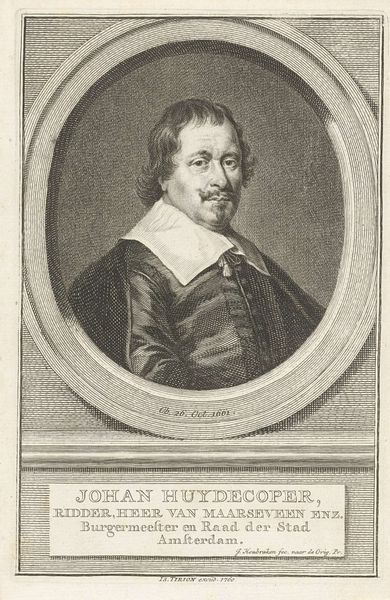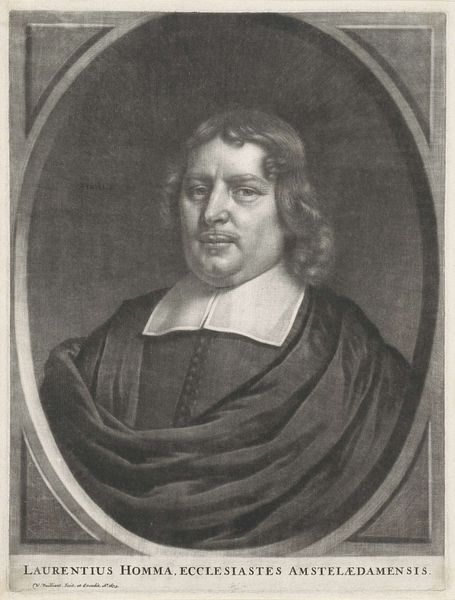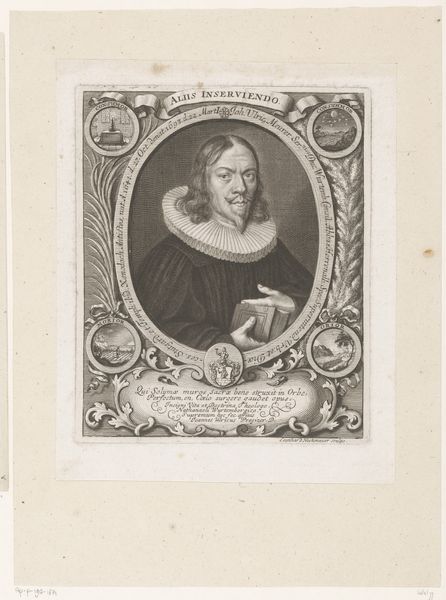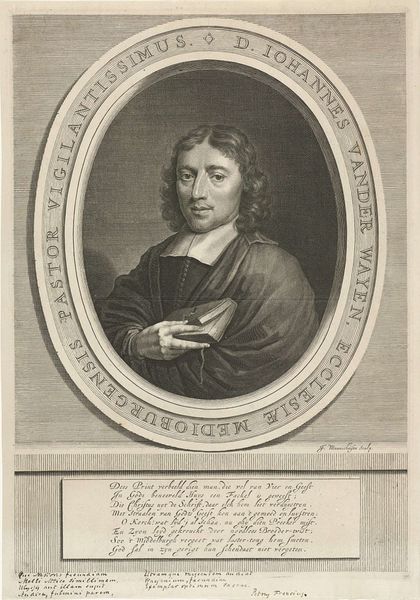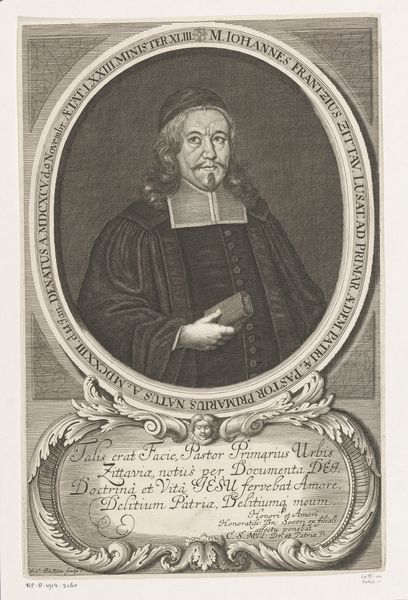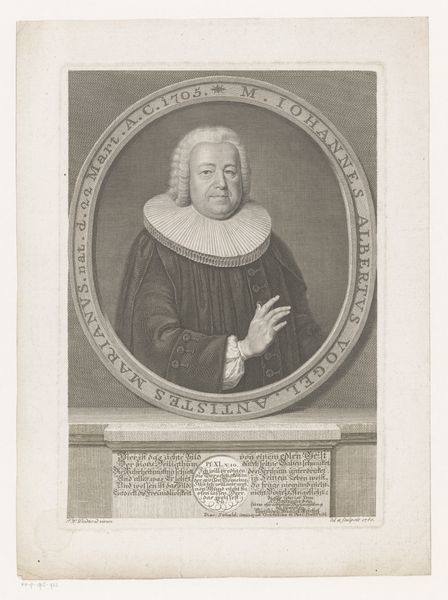
engraving
#
portrait
#
baroque
#
history-painting
#
engraving
Dimensions: height 286 mm, width 190 mm
Copyright: Rijks Museum: Open Domain
This portrait of Fabritius Bassecourt was made in 1649 by Abraham J. Conradus, using the technique of engraving. Engraving is an intaglio process, where lines are cut into a metal plate, inking the lines, and then transferring the image to paper under great pressure. Looking closely, you can see the dense network of fine lines that define Bassecourt’s features and clothing. The crispness of the lines gives the portrait a sense of clarity and precision, typical of engravings. Engraving requires meticulous skill and patience, reflecting the values of craftsmanship. But it was also an ideal medium for disseminating images widely, essential in an age of religious and political debate. The act of creating multiple identical prints speaks to a society increasingly shaped by mass production and distribution. Considering these aspects of material and making helps us appreciate the complex cultural landscape in which Conradus and Bassecourt lived.
Comments
No comments
Be the first to comment and join the conversation on the ultimate creative platform.
